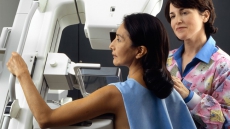Spending too much time sitting is bad for your heart as researchers, including one of Indian-origin, have found that sedentary behaviour is associated with increased amounts of calcium deposits in the heart's arteries, which in turn is linked to a higher risk of heart attack.
"This is one of the first studies to show that sitting time is associated with early markers of atherosclerosis buildup in the heart," said senior study author Amit Khera, associate professor at University of Texas Southwestern Medical Centre.
"Each additional hour of daily sedentary time is associated with a 12 percent higher likelihood of coronary artery calcification," Khera noted.
In the study published in the Journal of American College of Cardiology, the researchers concluded that reducing daily "sitting time" by even one to two hours per day could have a significant and positive impact on future cardiovascular health.
For many individuals with a desk job that requires them to sit for large portions of the day, they suggested taking frequent breaks.
In this study, the researchers asked some 2,000 participants to wear a device that measured their activity levels for a week.
Participants spent an average of 5.1 hours sitting per day and an average of 29 minutes in moderate to vigorous physical activity each day.
"We observed a significant association between increased sedentary time and coronary artery calcium," Khera said.
"These associations were independent of exercise, traditional cardiovascular disease risk factors such as diabetes and high blood pressure, and socioeconomic factors,” Khera noted.
This research suggests that increased subclinical atherosclerosis characterized by calcium deposition is one of the mechanisms through which sedentary behavior increases cardiovascular risk and that this risk is distinct from the protective power of exercise," he explained.





